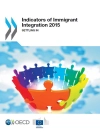This book draws on case studies of language management within British organisations to examine the decisions they make about language diversity in their professional communications in order to be successful in a multilingual world. It explores the practices that the organisations use to manage language diversity in interorganisational relationships, and why certain practices occur in some situations and not others. The book highlights how organisations rely on individual employees to perform a variety of language tasks and the implications of this; the effect of English as a global lingua franca; and the translation challenges which organisations face. The book demonstrates that practices to manage language diversity are often a result of the resources organisations have at given moments in time, rather than being part of a deliberate language management strategy.
Содержание
Figures and Tables
Chapter 1. Introduction
Chapter 2. Organisational Language Management Practices
Chapter 3. Managing Language Diversity as an SME
Chapter 4. Overcoming Language Barriers through the Use of Boundary Spanners
Chapter 5. Translation and the Challenge of Meaning
Chapter 6. BELF and its Malcontents
Chapter 7. Conclusion
Appendix
References
Index
Об авторе
Natalie Victoria Wilmot is Associate Professor in International Business and Deputy Head of the School of Management, University of Bradford, UK. Her research interests include language management, translation in organisational contexts and qualitative methodology.












